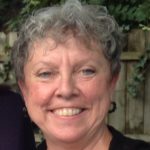 I was eight when my wonderful, tall, partially-bald-with-scant-red-hair dad with a smile that could light up a room died. His illness had been part of our lives. Then, one day he couldn’t endure another heart attack.
I was eight when my wonderful, tall, partially-bald-with-scant-red-hair dad with a smile that could light up a room died. His illness had been part of our lives. Then, one day he couldn’t endure another heart attack.
I remember being told he died. I remember people around me. I remember people telling me daddy was out on the road driving his truck. I remember the viewing. I don’t have many memories after that.
My mom told me I was the reason daddy died. She didn’t cry, instead she grabbed a Lucky Strike and went on with life. So, I followed along. I stole smokes every now and then and started trying to make up for losing my dad at 8 years old.
Did teachers, preachers or bus drivers ever see the sad faces and wonder what was behind the doors of where those kids lived?
I remember going back to school after my dad died. My teacher saw me crying and told me to “straighten up.” I don’t remember what I liked, disliked, who was kind and who was not. I remember being made fun of. And even now, at 63 years old, when I asked a classmate to share treasured childhood memories, she said, “You were an awkward one.” Looking back, I now realize that it can be really hard for many people to talk about mental health.
Was mental health even talked about, studied or known in 1964? Who helped my mom, a young widow? Who could help me?
I continued my quest to prove myself through relationships, marriage, children, drugs, alcohol and enduring abuse. I remember going to my friend’s house with my daughters when they were young and asking for help. My friend never turned around from her sink of dishes. She said she couldn’t help. I drove to a hospital and asked the receptionist at the mental health ward to take my girls because I couldn’t raise them the right way and I wanted to die.
Two nurses watched over my girls while I met with a counselor for hours. Then, late into the night, they opened the door for us and we went home. They saved me.
I lived and my children lived through it all. Scars inside and out are still part of us. We have a bond and a love that is unlike other families and God turned it around for the greater good.
Mental health awareness must have a voice louder than the depression, the pain and the dark side of life.
Today, I work two jobs in health care. I work part-time at an assisted living facility, where I care for more than 50 residents who come from all walks of life. Sadly, it is common to see that many of them suffer from depression, loneliness or confusion due to either a chronic illness or difficult life experiences. It’s a true blessing to be able to spend time with these people and encourage them to enjoy every day.
Along with my work at the assisted living facility, I also work full-time at a local family medical practice. It is a very large organization that helps patients from newborns to the elderly. I have had the honor to work as a registered medical assistant, office manager, secretary, phlebotomist and several other positions to help care for many patients in whatever way I can. During my 13 years at the practice, I have encountered so many patients who need an understanding ear or shoulder to cry on.
I obtained my emergency medical technician (EMT) certification and registered medical assistant (RMA) certification after the age of 60. Even after all these years working in health care, these certifications and Mental Health First Aid have given me great insight that have added to the quality of care I give. I have many friends, patients and acquaintances who call when they’re at rock bottom. I am no more special than anyone else, but I have learned to be the ear and the shoulder. Mental Health First Aid has helped me become that.
When someone is heartbroken, alone or feeling sad, it can be easy for them to give up. The skills learned in Mental Health First Aid help you understand these feelings and how to redirect thoughts or persuade someone to make changes that might save their life. Mental Health First Aid teaches people to better understand what mental health and substance use is, what problems can look like and how to get the help they need. I am grateful to have grown and recovered through my journey and encourage everyone to take a Mental Health First Aid course as the first step to healing and living life to its fullest.